If you have access to a car in Aberdeen, there are perhaps 10 foodbanks within reach every day.
Mostly run by independent charities, they have no mechanism for sharing information about who is seeking help.
And the staff are in no position to verify how in-need people may be.
This “massive glut” of provision plagues Instant Neighbour’s Evan Adamson with a recurring question.
“Are there, maybe, too many foodbanks in Aberdeen to actually help?
“The city almost makes it too easy for beneficiaries to go from one foodbank to another,” he tells The P&J.
‘We are beyond normalising foodbanks – we are promoting them’
A former foodbank user himself, he now runs Instant Neighbour‘s emergency food service.
The emergency foodbank operates in St Machar Drive.
With lived experience of food poverty, Evan has been tasked with helping to steer Aberdeen’s efforts to tackle inequality.
Along with Instant Neighbour’s chief executive Sophy Green, he has a seat on the council’s new anti-poverty committee.
They will meet for a second Town House meeting this week.
While the charities working to feed Aberdeen’s hungry were praised back in November, Evan is hesitant.
He says: “We are actually at a point where we, as a society, are promoting foodbanks with talk about the ‘amazing job’ they do.
“There shouldn’t be foodbanks in this age. We are beyond normalising foodbanks.
“We are talking about a cost-of-living crisis now. But it has been there for a long time since benefits were changed.
“We are talking about it now because it is affecting people who work too.
“What I can’t get my head around is society and the establishment actively using foodbanks to support the welfare state.
“With as many foodbanks as there are in Aberdeen, are we helping or enabling people not to be proactive?
“The benefit system should be a stop gap but this almost sets a cycle in motion.”
‘I can’t my head around foodbanks being used to support the welfare state’
Evan cites such an example of this, a common practice he and other foodbank bosses in Aberdeen have found at the job centre.
They say when people sign on for benefits, a list of the city’s foodbanks is “one of the first things” they are given.
“The Department for Work and Pensions (DWP) is telling you you cannot afford to live,” Evan tells us.
“There is an understanding that you are entitled to use a foodbank because you are on benefits – ‘here’s a list of free food‘.
“If smart and with access to a car, you can get £200 worth of food a week.
“That goes when you get a full-time job – foodbanks are open during the working day.
“People have started to rely on foodbanks. It is something we work very hard to try and stop the habit.”
Aberdeen foodbank boss: The difference between ‘free’ and ’emergency’ food is key
He is trying to overcome this “sense of entitlement” with more targeted language. But it is an ongoing struggle with so much news coverage of the dire straits people are finding themselves in.
Often, he says, foodbanks are the first port of call whenever someone finds themselves in need of any kind of financial assistance.
The idea that there are stocked shelves full of free food is straining resources for those most in need, Evan claims.
“More and more, I am seeing ‘free food’ being used when speaking about foodbanks. And this may sound pedantic…
“But when it comes to ’emergency food’, people maybe think slightly more before they come. They might ask themselves: ‘am I entitled to this?’ – or they ask us.”
‘Free food’ entitlement hinders Aberdeen foodbank’s ability to help
The ensuing conversation is where charities like Instant Neighbour come into their own.
Getting people to open up – amid panic in the cycle of non-relenting bad news – means they can signpost them to more appropriate help.
The idea of “free food” creates a barrier to that.
Faced with questions of why they need the help, foodbank staff are told: “Well, it’s free. I’m on benefits. I’ve been told we’re allowed it.”
If referred by social workers, a teacher, a doctor or another official, beneficiaries can turn to the Trussell Trust.
There, they can get a more substantial food parcel than many of the independents in Aberdeen can offer.
Foodbanks are a ‘sticking plaster’ for a generation without money skills
But it is the smaller charity-run enterprises which operate around 70% of the city’s foodbanks.
They supply two or three days’ worth of food, and Instant Neighbour tries to ask people not to return within a fortnight.
Evan adds: “When I was using foodbanks, I gave the general response when asked why I needed help…. ‘I am skint’.
“When they asked me why that was, I stopped in my tracks. Mainly, we are dealing with people in debt.
“There are lots of sticking plasters right now – food parcels being one – but ultimately, what we need is to teach people how to manage money properly.
“I was never taught that at school. There are now generations of people who don’t save – or now can’t.
“We won’t turn anyone away but we want to speak to people about why they need our help.”
The Press And Journal’s Big Food Appeal triples donations for Aberdeen-based foodbank
Get involved with The Big Food Appeal
Readers of The P&J, Evening Express and listeners of Original 106 together raised more than £8,000 for north-east foodbank Cfine over the festive period.
Donors helped DC Thomson triple the food we collected to help the most in need compared to 2021 as well.
The donations topped 10,900kg of food, the equivalent to nearly 26,000 meals.
Cfine acts as the regional base for the FareShare project, sharing the wealth of donations with other foodbanks in the north and north-east.
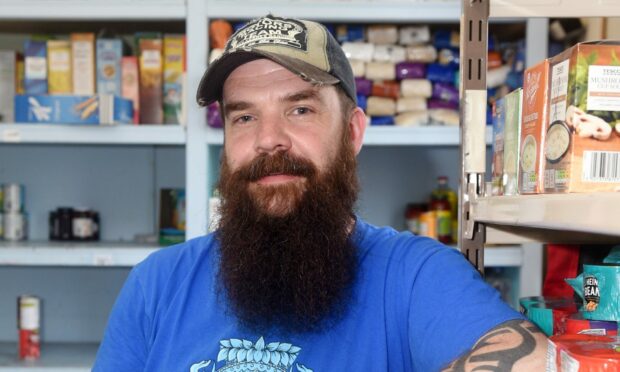
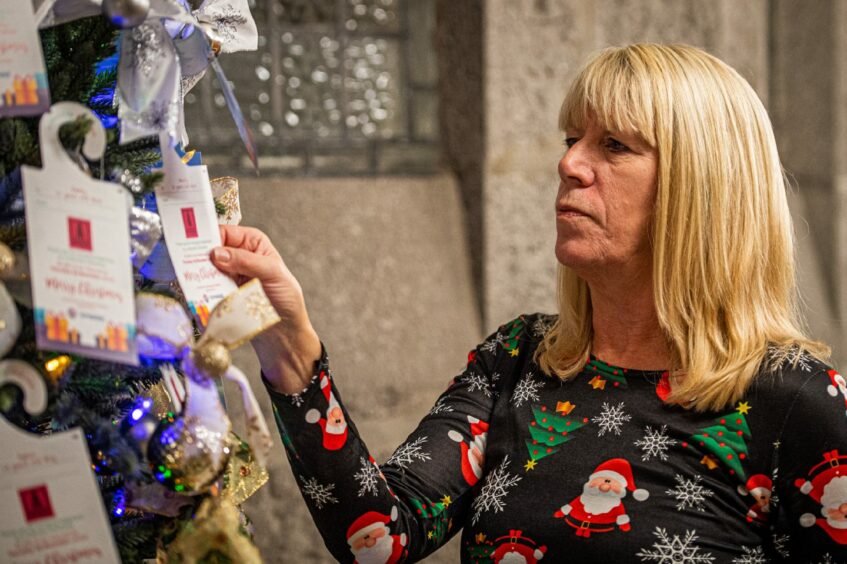
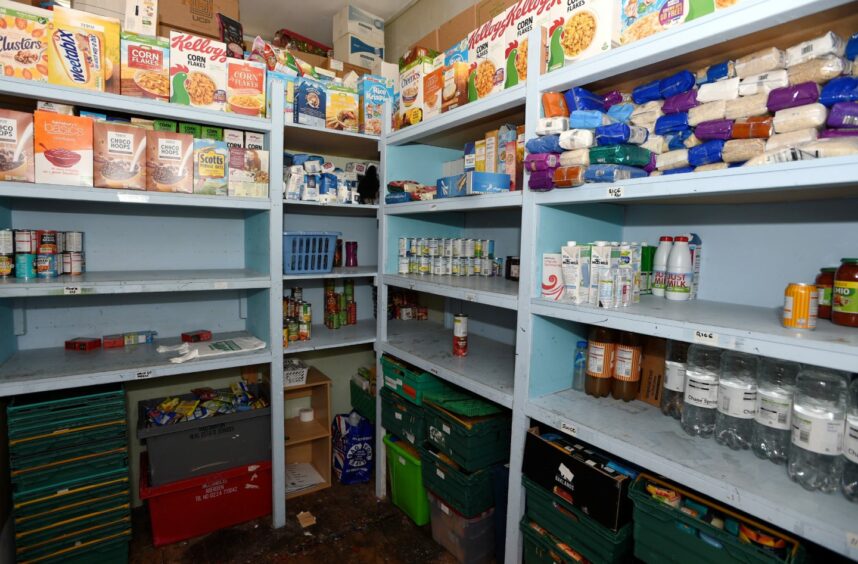
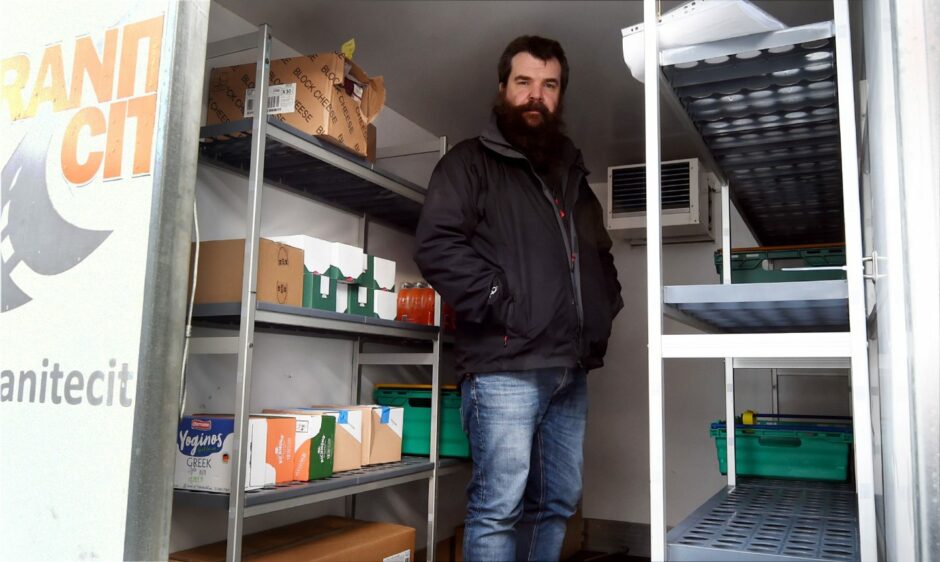
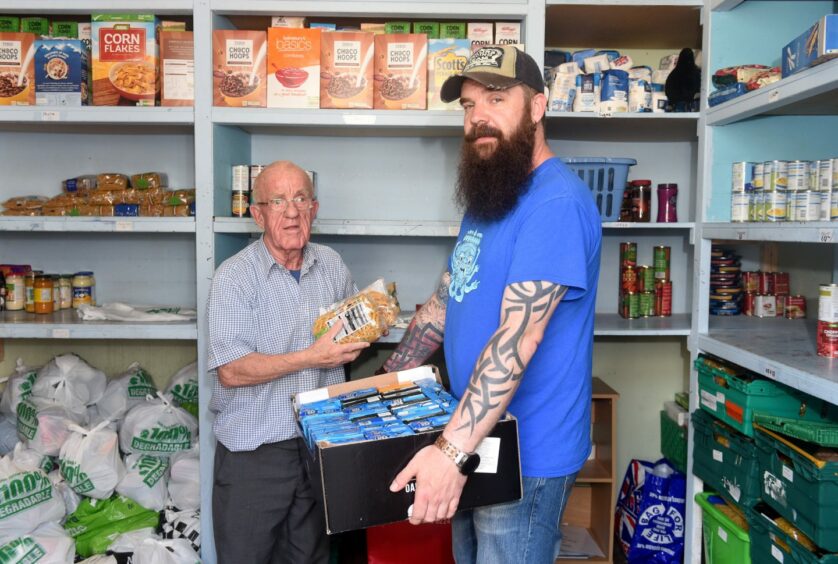
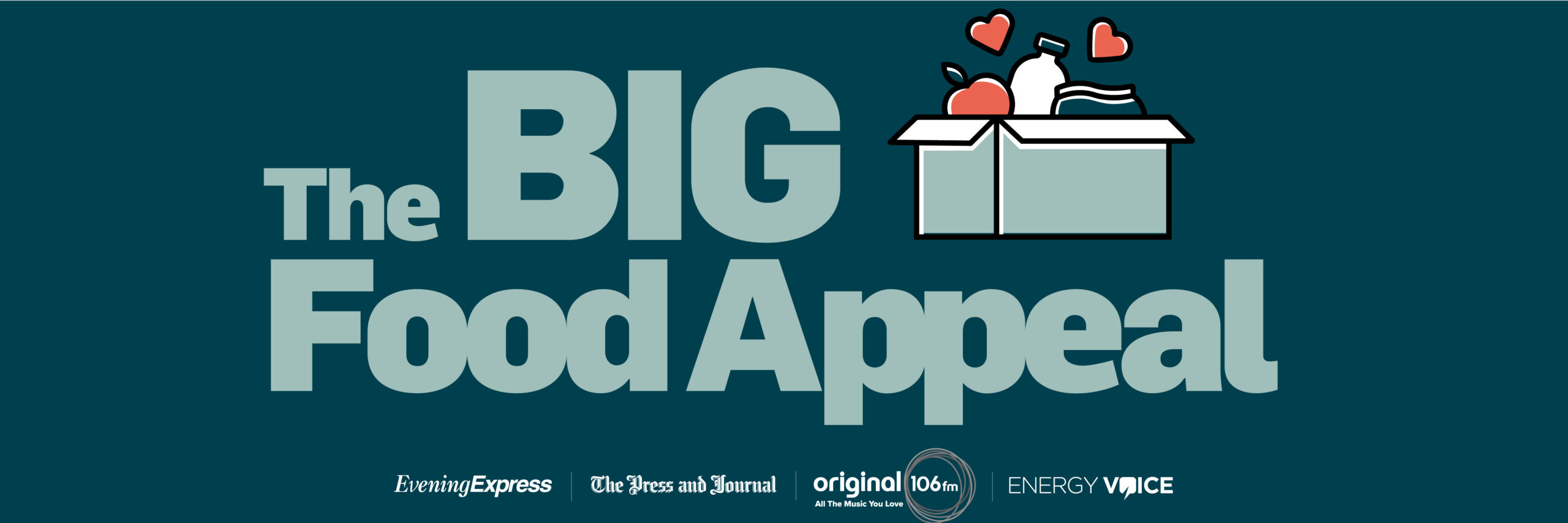
Conversation